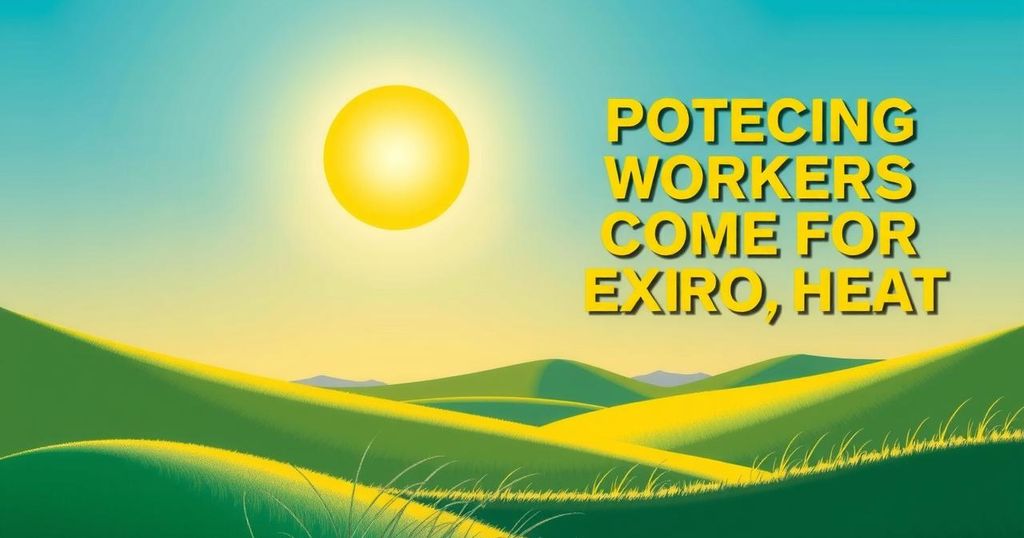Colorado lawmakers are evaluating House Bill 25-1286 to protect outdoor workers from extreme weather by requiring employers to provide shade, heated shelters, water, and rest breaks. Supporters cite climate change-induced risks, while opponents express concerns over duplication of OSHA regulations. The bill is scheduled for its first committee hearing on March 13.
In Colorado, lawmakers are deliberating on House Bill 25-1286, which mandates that employers must ensure shade and heated shelters for outdoor workers under specified temperature conditions. Additionally, the bill requires access to water and scheduled rest breaks to safeguard against extreme heat and cold. Proponents assert that the legislation is essential due to the increasing risks associated with climate change, while detractors argue it overlaps with existing OSHA regulations and could disrupt operational scheduling.
The bill has garnered support from labor and advocacy groups, yet it faces opposition from industry organizations. The first committee hearing is scheduled for March 13, where the proposed legislation will be examined further. This initiative aims to address serious health risks posed by extreme temperatures, particularly for outdoor workers in construction and agriculture, acknowledging that climate change contributes to the increasing frequency of such hazards.
It is important to note that extreme temperatures can induce severe health issues, including heat stroke and frostbite. Heat has been identified as the most perilous weather-related hazard in the United States, and the anticipated climate change exacerbates the situation. Existing OSHA guidelines provide some level of protection; however, enforcement varies, leaving many workers vulnerable to hazardous conditions. If enacted, this bill could establish stronger protections for workers, potentially influencing similar legislation across the nation.
In summary, Colorado’s House Bill 25-1286 seeks to enhance worker safety by mandating provisions for shade, heat shelters, hydration, and rest for outdoor workers. Given the increasing risks linked to climate change, this legislation could be pivotal in setting higher safety standards. While it has encountered opposition, its successful enactment may lead to more robust protections for vulnerable workers nationwide.
Original Source: www.dailyclimate.org




